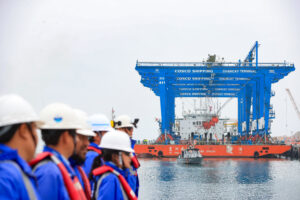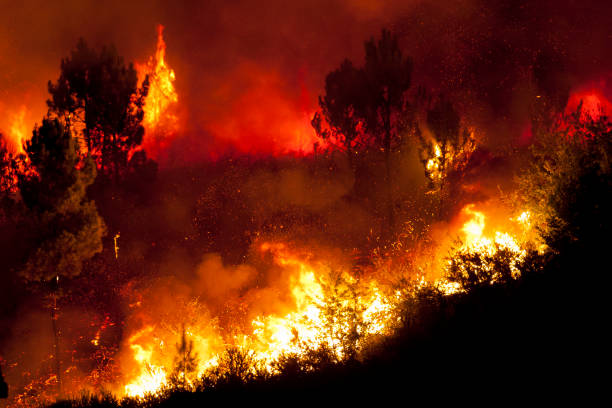In September 2024, Portugal was hit by numerous fires of extreme intensity. These flames, fueled by climatic conditions such as extreme heat and strong winds, ravaged the country. Tragically, these fires brought with them a heavy human, material, and environmental toll.
Investigations are underway to determine the origins of the fires, with some suspected of being deliberately ignited. The Portuguese police have already made several arrests and are seeking to establish whether criminal networks could be involved in certain fire outbreaks.
A catastrophe of great scale
The fires primarily affected the northern and central regions of the country, where hundreds of thousands of hectares were reduced to ashes. Within days, these blazes destroyed homes, forests, and agricultural land, plunging many local communities into despair. More than 100,000 hectares were devastated, marking one of the worst natural disasters the country has faced in recent decades.
Portuguese authorities quickly reacted by evacuating thousands of residents from high-risk areas. Several villages had to be completely emptied, particularly in the district of Aveiro, one of the hardest-hit regions. In Albergaria-a-Velha, a locality at the heart of the fires, several houses were destroyed, and factories were threatened, forcing the evacuation of residential and industrial zones. Meanwhile, the main highway connecting Lisbon to Porto had to be closed in certain areas due to thick smoke that rendered visibility nearly impossible.
In addition to the material losses, the fires led to heavy human casualties. According to the final toll, five people lost their lives, and around a hundred were injured to varying degrees. Among the deceased were three firefighters who were battling the flames in a forest fire in the municipality of Coimbra.
The Portuguese authorities declared a state of calamity in the affected regions and promised swift assistance to the victims. The government announced exceptional measures to compensate for material losses, with support reaching up to 85% of reconstruction costs for destroyed homes.
Coordinated European solidarity
In the face of the scale of the catastrophe, Portugal did not fight alone. Thanks to the RescEU program, a solidarity mechanism of the European Union designed to respond to major natural disasters, several European countries quickly sent reinforcements. Spain, France, and Greece dispatched specialized aircraft to help combat the fires. This international cooperation was crucial in limiting the spread of the flames in particularly threatened regions.
European Commission President Ursula von der Leyen emphasized the importance of European solidarity in the face of climate disasters. « The European Union is mobilized to help its members face climate-related crises. We must act together to protect our citizens and our territories, » she stated at a press conference.
The role of climate change
The fires that ravaged Portugal are a clear illustration of the impact of climate change on natural disasters in Europe. This phenomenon is not unique to Portugal; in recent years, many Mediterranean countries have faced increasingly frequent and severe fires, reflecting the accelerating effects of global warming.
Climate experts and environmental authorities have warned that these disasters could become even more frequent and devastating in the coming decades if drastic measures are not taken to reduce greenhouse gas emissions and improve forest management. Portugal is particularly vulnerable to these climate changes due to its geography and hot, dry summers.
A country with a troubled history of fires
For many years, Portugal has been regularly marked by violent fires, transforming its summers into seasons of fear and destruction.
The year 2003 was a tragic turning point: uncontrollable flames ravaged more than 425,000 hectares, resulting in over 20 fatalities.
Then, in 2017, a new tragedy struck the region of Pedrógão Grande. That year, devastating fires engulfed villages, killing 66 people and leaving families in deep sorrow, as entire communities were reduced to ashes. The firefighters, often overwhelmed, fought heroically against fires of unprecedented violence. In October of that same year, strong winds linked to Hurricane Ophelia fueled more than 500 fire outbreaks, causing an additional 45 deaths and plunging the country into an even deeper crisis. These episodes testify that, despite efforts in prevention and forest management, remains extremely vulnerable to the destructive power of nature.
For now, the country is nursing its wounds, while thousands of citizens await news of when and how they will be able to rebuild their lives after this tragedy.










